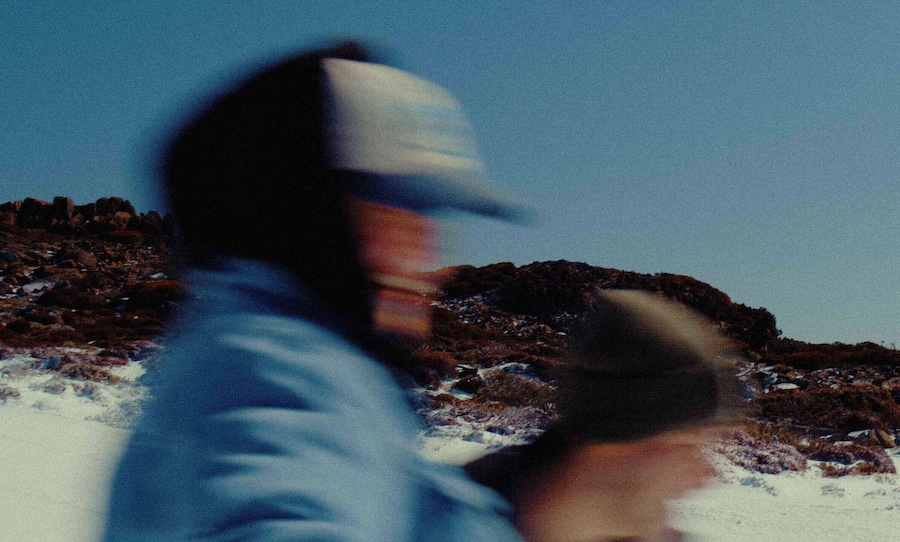AViVA talks Melancholy, upcoming book, and the freedom of being yourself amongst a landscape of viral trends.
Through her latest single Melancholy, AViVA branches out with a more “introspective” sound that highlights the liberation presented to us when things in our lives end.
Happy had the chance to speak with AViVA about her latest single, hardcore Russian fans, her upcoming book self/less and how billions of streams and incredible success do not necessarily warrant you as ‘mainstream’ in the music industry.
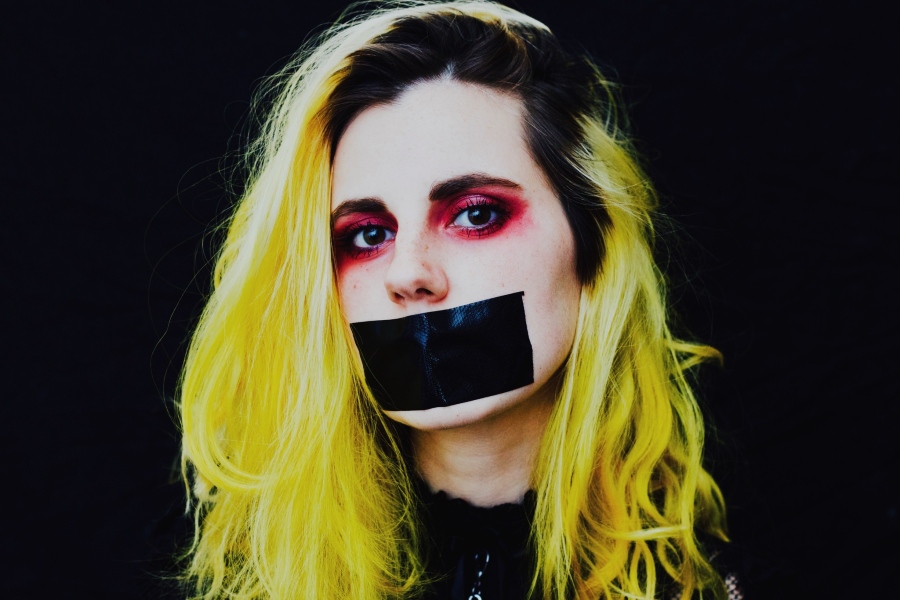
HAPPY: Fantastic. So I guess I wanted to ask firstly, how are you going, how’s covid, are you in Australia right now?
AVIVA: Right now I am in Australia.
HAPPY: Yep
AVIVA: Um, covid is what it is and it’s doing its thing and I’m doing mine and we’re co-existing so far. I mean, I don’t really go out because I’m a singer and that would not be advantageous to my career. *laughs*
HAPPY: No. *laughs*
AVIVA: But I’m a bit of a homebody – wherever I am I like to stay there so I can do the things that I like to do.
HAPPY: Yeah, how have you been entertaining yourself?
AVIVA: I work a lot. So I have been working on my books and working on new music and I have been doing that a lot, and a lot of reading, and I like to sew so I do a lot of sewing and I make a lot of my own clothes. So, things like that.
HAPPY: Shit.
AVIVA: Creative things!
HAPPY: Oh my god. Because I want to get into the fact that you’re a multi-disciplinary artist, I figure that’s really fucking cool. But I also want to talk about Melancholy first, I think its so different from VOLUME 1 or GRRRLS, but I can’t put my finger on what’s changed and I was wondering if you could shed some light on that?
AVIVA: I think that the thing that makes Melancholy feel different to some of the other songs, is that from the outside it sounds a little bit more down because its “Melancholy, you’ve got me”, where as some of the other songs are a bit more like ‘fight back, stand up’ you know, assertive in that sense, whereas Melancholy feels a little more introspective, I think – that’s the main difference. I would say that from an emotional perspective, Melancholy is closest to Drown because they’ve both got that kind of ‘surrender’ feeling about them. But Melancholy to me isn’t actually about being melancholic its about what happens afterwards, and that’s why I always say the line from the song, “things will never be the same”, kind of stands out to me because that can be interpreted in so many different ways. To you that could mean like, ‘Oh, shit it’s never gonna be the same, that sucks’, but to me I look at that like, ‘things will never be the same and that means that there’s new life and potential and growth’, and everything that happens to us changes us in some way and makes us who we are.
HAPPY: Yeah, I think that’s what I loved about your music so much. This is also just me sort of touching upon something but, it’s never about the bleak emotions that everyone feels, it’s always about the weird, niche things that everyone still feels but I feel get overlooked or ignored. I’m wondering, how long did it take you to cultivate that way of thinking and put that into your art?
AVIVA: I think that’s just how I feel and how I think. I am a massive Smiths fan, I’m wearing a smiths t-shirt, and the idea of being different and being an outsider – that’s what my fans are called, ‘The Outsiders’ – and the outsider experience is what all my music’s about. I think that for me I realised that I was different and I had unique interests, and once I decided that I wasn’t bothered by that and I was happy to be unique and different from other people, other teenagers or whatever, when I was a teenager, it kind of changed my perspective on life, on the world, and freed me up a lot. I think I just want to encourage other people to find their own freedom to be themselves and to like what they like, even if it’s not ‘trendy’ or ‘popular’ or ‘viral’ or whatever it is that people are obsessed with now – virality. I think that if you like something, that’s beautiful and it’s okay and you should like it, who cares what other people like.
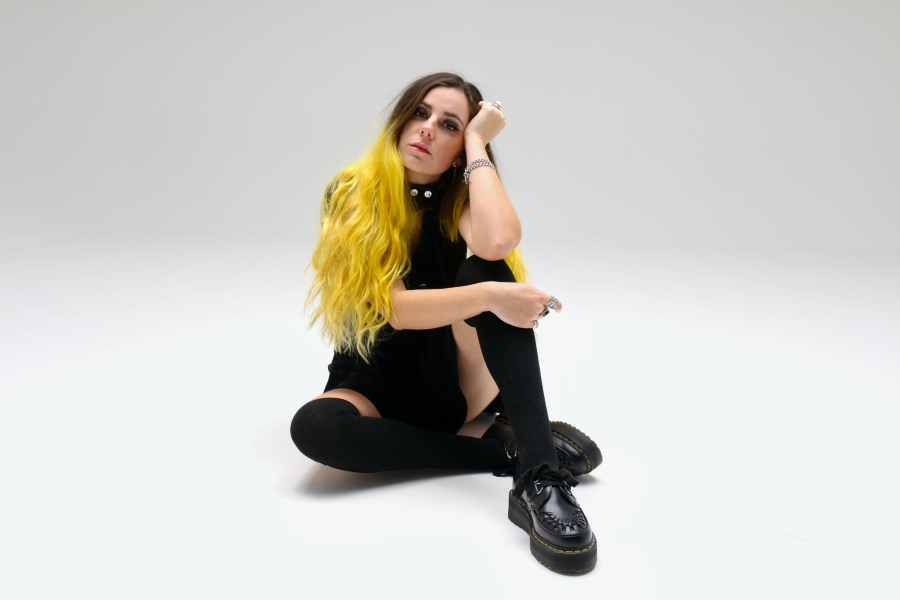
HAPPY: Yeah, and I think that that’s a gorgeous sentiment. I also want to touch upon the fact that you’re probably one of the only Australian artists right now who’s making successful and good emo pop. I want to get some insights into how, maybe why was the direction you went into. I think you kind of already explained that, that it’s just something that’s always gravitated towards you, but I guess still there’s this intrinsic, accessibility to it that I feel like just hasn’t quite been done before. How long did it take you to cultivate that sound?
AVIVA: I think that, originally the music I was creating was a little bit more, not juvenile, but I would say that when I first started writing music to have a career in music, the music was trying to be like what everything else sounded like.
HAPPY: Yeah, yeah.
AVIVA: And I was connecting with my lyrics because they are an extension of myself, but when I finally decided, and I do my song writing with Matais, and I decided I wanted to do something different and he was the same, and we came from different musical backgrounds but they were both heavily influenced by punk, and emo, and music that has feeling and I love classical music and classical music doesn’t, I mean opera has lyrics, but generally classical music is instrumental – but it is very emotional – and everything that I do is about evoking emotion. Like you said, you can feel that I’m trying to evoke emotions in my songs, and I think that the only way to do that is to be authentic and to write music that is about real things. I don’t think that songs about parties and breakups are necessarily authentically expressing deep emotions? And even with a breakup, my songs are about friendships and friendship breakups and those sorts of things, even in a relationship breakup, it’s often the friendship that’s missed the most anyway. So that’s why they’re universal and that’s why a seven-year-old fan can find meaning in my music just as much as their 47 year old parent, and I think that’s amazing.
HAPPY: Yeah, I think that’s a beautiful way to put it too, like I think that it’s touching upon things that, at the end of the day, matter more. I also want to ask about the fact that GRRRLS sort of exploded, this is something that I’m asking about people who have just sort of gone viral essentially, their music has just sort of taken off through different mediums that fall outside of the music industry standard. I just want to know, is there a sense of autonomy or power that comes with that – the fact that you’ve sort of broken into the music industry but not in the traditional sense.
AVIVA: I think that being an Australian artist with over 3 billion streams to my music, and having been independent – up until this point for Melancholy – is something that is definitely unique and surprisingly overlooked, despite the fact that there’s no other artist in Australia that’s done that before, and I find it very interesting because you hear about particular Australian artists a lot and you might say their name and people on the street would know who they are, but they wouldn’t necessarily know who I am even though I have these plays and this rabid fan base of crazy, hectic super-fans, like my fans are the best and they’re really intense. I have fans in Russia that graffiti trains with my symbols and my name and all this crazy stuff, and the everyday person may not know about it, but they will, in time.
HAPPY: *laughs* Yeah, but I think that’s the cool thing is that you have, you’re one of the new…there’s no terminology that I can put towards this but new artists who have broken into a successful career in music but it’s not in those traditional standards, and I think that’s always interesting to touch upon. I also wanted to ask about your multi-disciplinary art and, I guess I’m always intrigued by how each thing affects each thing. So how does your music affect your writing, how does your writing affect your music, do they play into each other or do they come in existing vacuums sometimes?
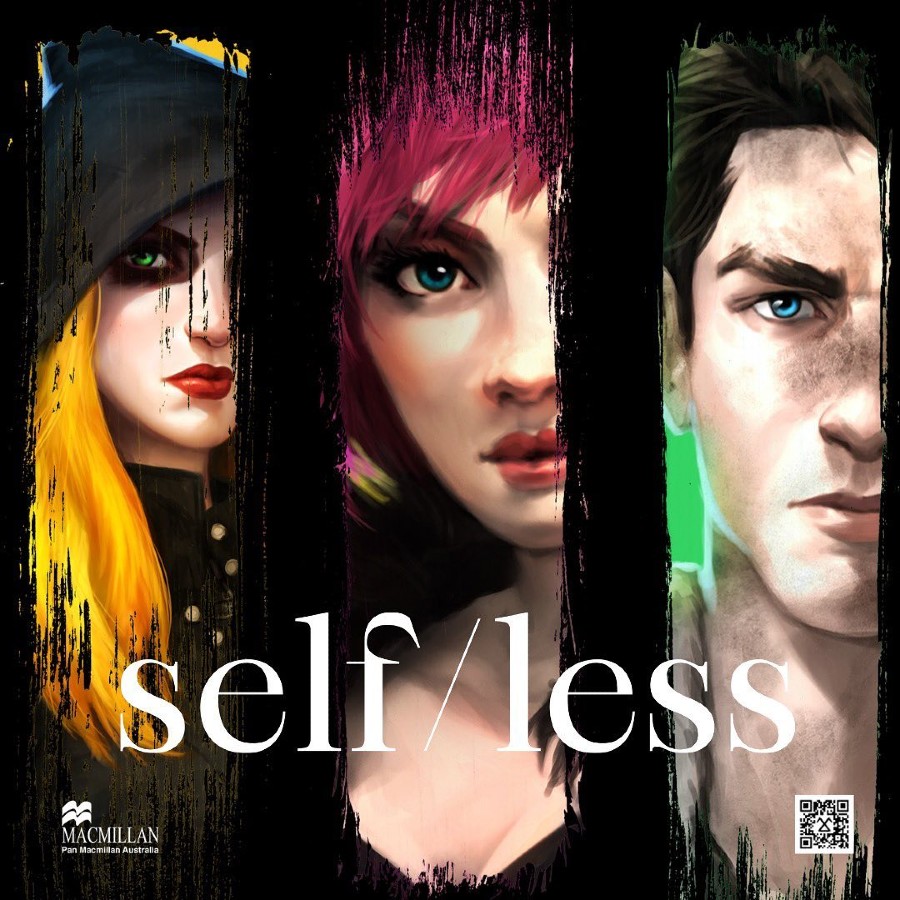
AVIVA: No they’re definitely inextricably connected. I started writing to create stories to the music I listened to when I was a teenager, and I started writing music to soundtrack the books I was reading, and when I got older I was like ‘I wanna do that’ and ‘I wanna be in control of the story and the sound’ and if I want it, I’m sure there’s at least one other person out there that would want it as well. So when I started VOLUME 1 I did it with this idea, but it wasn’t just about creating a concept album, it’s really about creating a concept lifestyle – it’s a world, and there are three books in this series, and the first book is only just about to come out at the end of September, so an October release for book one. I’ve written a few other books that haven’t come out yet, because self/less is my baby and it’s my priority. But music is a part of everything I do because music soundtracks life, and so for me, the music that I am putting out right now is sound tracking the world of this book. Obviously, the music can exist on it’s own and the books can exist on their own, but you get the most enhanced experience if you choose to experience both mediums together, and I think that’s what makes good art – art that can hold its own and exist on its own but is enhanced by deeper sort of mediums, deeper reflection, deeper digging into the world behind the art. And I think its really important for people to find art that actually has deeper meaning because there is so much two-dimensional media and content out there now that, you know there is so much content and we don’t have an infinite amount of time on earth so we might as well find content that actually has value to add to our lives and meaning behind it.
HAPPY: Yeah, I completely agree. So I’m guessing with self/less, just because I’m really interested to get an idea of…how can I explain it? I’m guessing its dark, I’m guessing it’s going to be a quite a dark book giving the soundtrack that you’re sort of putting towards it. Am I projecting there, or?
AVIVA: There are elements in the story that are dark and it is emotional, like my music is emotional, but it is also filled with hope and excitement and it reflects real life. So just as much as there is darkness, there is still light there, and in everything that I do I want to show that you can’t have the light without the darkness.
HAPPY: Yeah.
AVIVA: And the music sounds so dark but if you read the lyrics and reflect on them you can see that it’s about self-empowerment and it’s about finding your voice and my book is the same, it’s the same, it’s about finding your voice. Everything I do, everything I create is about self-expression and creativity and providing a platform and providing an example through how I live my life to show other people how its possible to express yourself and to live a creative life and that that’s a fulfilling way to be.
HAPPY: Yeah, its good for the soul.
AVIVA: Definitely.
HAPPY: I also wanted to touch upon this idea of creating music to work with other things. If you could soundtrack any book that you’ve read recently, which one would it be?
AVIVA: Ooh that’s a good question. I read a lot of books, a lot…I think if I could create a soundtrack that includes songs that already exist, as well as writing songs, it would be a book by Neil Shusterman called Game Changer that just came out a few months ago. It’s a very interesting book and I think that it just has so much potential to have a really interesting soundtrack that combines music of the past as well as new music that’s yet to come. So that’s my current pick, that’s what I would choose if I had to choose today.
HAPPY: I’m going to have to give that a read, what was it called again?
AVIVA: Game Changer.
HAPPY: Game Changer, I’m going to have to give that a read actually.
AVIVA: It’s really good, I read it in a day, it’s a very easy read.
HAPPY: Yeah, fuck me up. I also want to ask about the Melancholy music video just because it looked like it was so much fun to make, but also there’s something, again there’s something I can’t quite put my finger on, but it just hits, hits the heart a little bit. How did it all come together, was it your vision? I want insight.
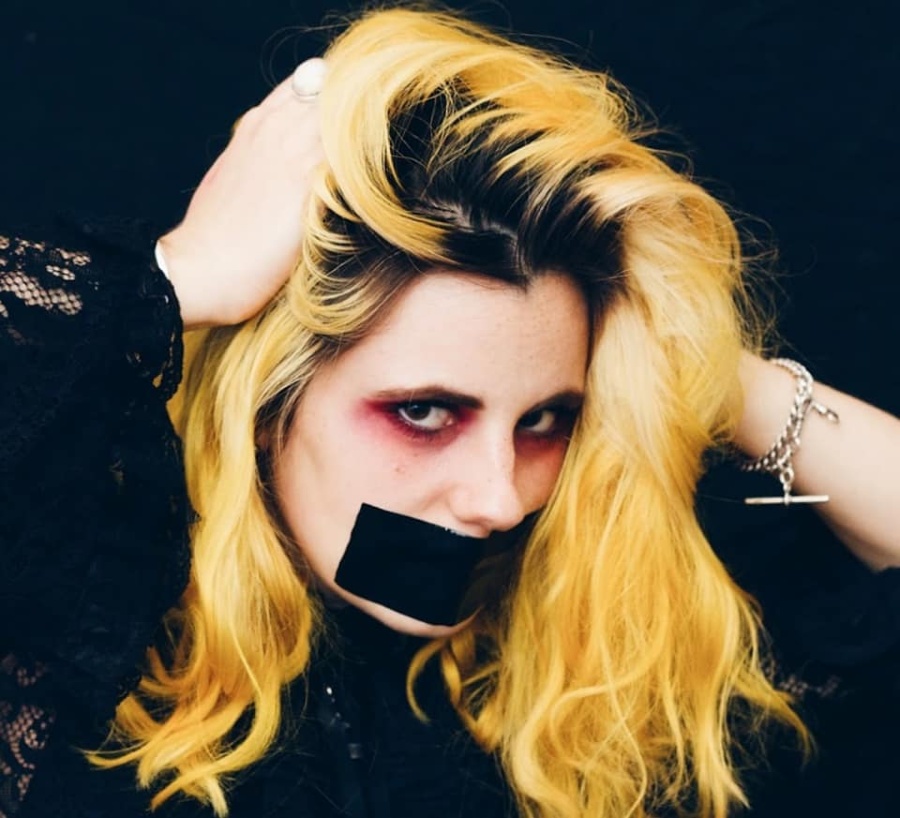
AVIVA: Uh yeah! Well we did it in a day, we shot it in a day just before the lockdowns, literally the week later the lockdown happened, so it was very, very lucky. We shot it, and I had this concept before we went in for the treatment, that I wanted to show AViVA, me, and I wanted to show the main character of self/less, and her name is Teddy, and I wanted to show both of them in the film clip and kind of create this weird, psychic connection between the two of them, because one of them is experiencing one thing and the other ones experiencing another thing and I wanted to show a figurative version of me as a student because ever since I was a teenager I’ve been doing this stuff and dreaming this stuff and I’m finally able to do the things I’ve always wanted to do growing up. So I kind of wanted to thread all these different things in and I did that, and so the scenes with the hospital and in the plaid pants, all of those things are kind of just figurative moments from the story that, you know – they’re there and they exist on their own – it’s like everything, but when you know the story you’ll find that there’s hidden Easter eggs and there’s a deeper level of meaning and all of that is buried in there. But I just wanted to show people that the music video is colourful even though the song is dark and sad, it’s that whole thing! It’s like it doesn’t matter how dark something might seem, it doesn’t matter how scary something might seem, there’s still light, there’s still colour and there’s always hope. I think that’s what Melancholy is about to me, it’s about that hope, it’s about not worrying about how bad things seem now because in the end it will pass because all things pass and you can’t just get bogged down in the worst thing that’s happening to you today because, eventually, it will pass.
HAPPY: Yeah. I just want to touch upon something real quick that I just think is interesting – I like how you talk about AViVA and Teddy like they’re a part of yourself but they’re also different characters. It’s like you’ve built these worlds with different people involved in it. I just think it’s interesting when musicians have these alter egos for themselves. Would you agree?
AVIVA: I don’t think that AViVA is an alter ego because I am AViVA, so AViVA is me. Teddy is a character that I play and she exists in her own world and I just have always wanted it to be really clear that I am not Teddy and Teddy is not AViVA and I think that that’s why it’s interesting for me because people automatically go, ‘Oh! So Teddy is like an alter ego or a version of you?’ and I’m like, ‘No, she’s not, she’s a fictional character that I’m playing’, much like someone might cosplay a character from an anime show, and I’m not that character and Teddy’s the same. You know, every character in my book has a piece of me, not just Teddy, there are characters that probably have more of me than Teddy even does, but I love her and I play her because her story is special to me and her story is a great way for me to communicate my message which is, ‘speak your truth and be honest with who you are and who you need to be.’
HAPPY: Yeah, I think that that’s beautiful. I think that sort of wraps up all the questions I had, just thank you for talking to me, this has been fucking incredible.
AVIVA: Thank you! We managed to fit it all in, we fit a lot into the 20 minutes.
HAPPY: Yeah we really did that. Again, I’m so sorry that I was so late!
AVIVA: Don’t worry about it, it’s all good.
HAPPY: Thank you. Otherwise, I hope you’re doing well, I hope you’re sliving-ish. *laughs*
AVIVA: Thank you. Yes, I’m always surviving, I’m always living, always making being creative, it makes everything okay to me!
HAPPY: *laughs* Yeah, valid. I just have one more thing. Is there anything you want to add in, or anything I haven’t touched upon that you think is important?
AVIVA: No, I don’t think so! I think that you asked a bunch of good questions, and I had a great time answering them so thank you so much!
HAPPY: Thank you. Be safe, don’t get Delta, make good choices!
AVIVA: Bye!
HAPPY: Bye, thank you!
Melancholy is out now on all streaming services – go and have a listen!
Interview by Mike Hitch.
Photos Supplied.


